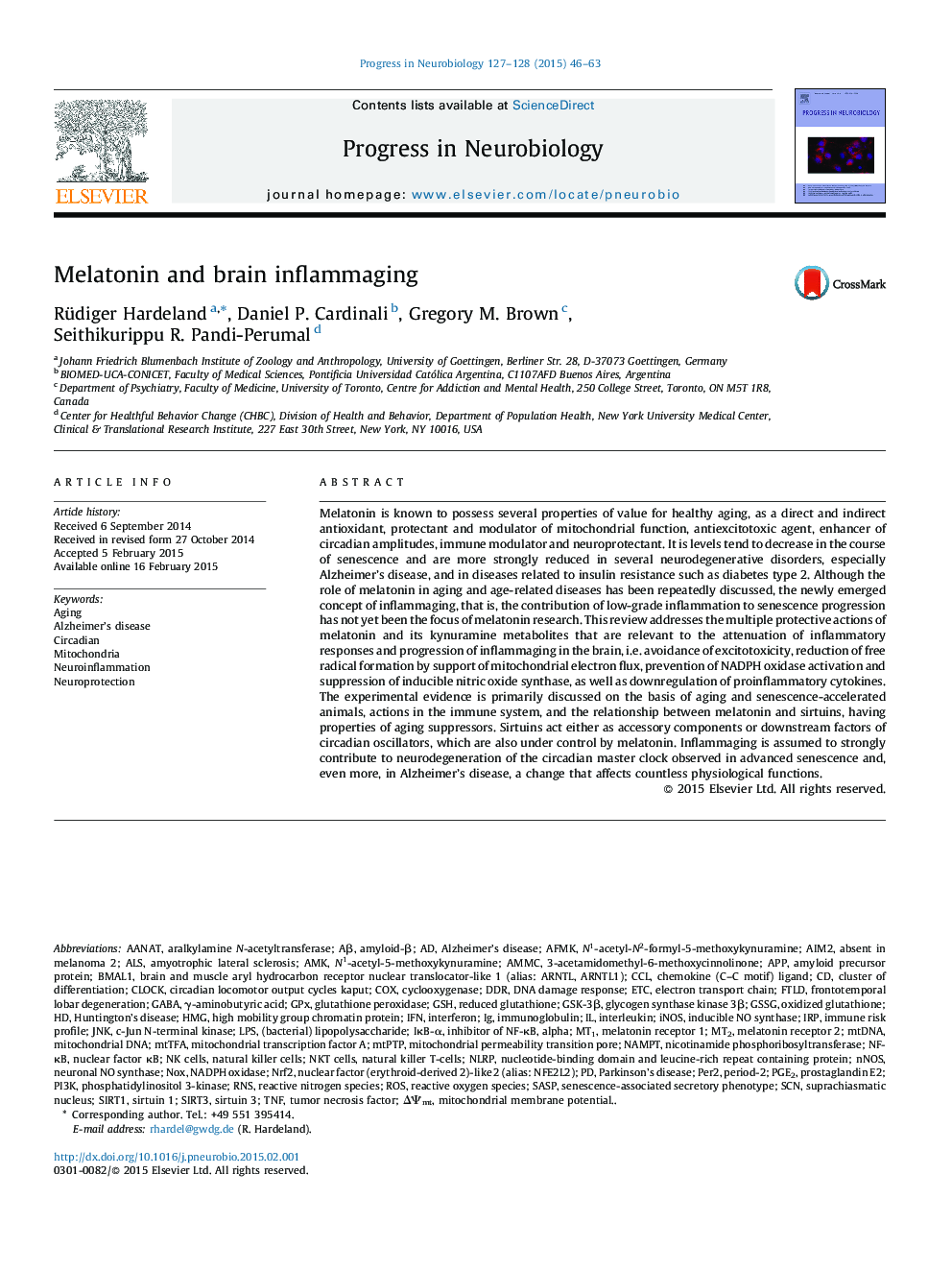| کد مقاله | کد نشریه | سال انتشار | مقاله انگلیسی | نسخه تمام متن |
|---|---|---|---|---|
| 4353284 | 1615383 | 2015 | 18 صفحه PDF | دانلود رایگان |
• Actions of melatonin are analyzed with regard to their relevance to inflammaging.
• Melatonin counteracts various processes that lead to low-grade brain inflammation.
• Melatonin can exert either pro- or anti-inflammatory actions.
• In senescence-accelerated mice, melatonin is reported to mainly reduce inflammation.
• Melatonin acts on circadian clocks including their accessory component sirtuin 1.
Melatonin is known to possess several properties of value for healthy aging, as a direct and indirect antioxidant, protectant and modulator of mitochondrial function, antiexcitotoxic agent, enhancer of circadian amplitudes, immune modulator and neuroprotectant. It is levels tend to decrease in the course of senescence and are more strongly reduced in several neurodegenerative disorders, especially Alzheimer's disease, and in diseases related to insulin resistance such as diabetes type 2. Although the role of melatonin in aging and age-related diseases has been repeatedly discussed, the newly emerged concept of inflammaging, that is, the contribution of low-grade inflammation to senescence progression has not yet been the focus of melatonin research. This review addresses the multiple protective actions of melatonin and its kynuramine metabolites that are relevant to the attenuation of inflammatory responses and progression of inflammaging in the brain, i.e. avoidance of excitotoxicity, reduction of free radical formation by support of mitochondrial electron flux, prevention of NADPH oxidase activation and suppression of inducible nitric oxide synthase, as well as downregulation of proinflammatory cytokines. The experimental evidence is primarily discussed on the basis of aging and senescence-accelerated animals, actions in the immune system, and the relationship between melatonin and sirtuins, having properties of aging suppressors. Sirtuins act either as accessory components or downstream factors of circadian oscillators, which are also under control by melatonin. Inflammaging is assumed to strongly contribute to neurodegeneration of the circadian master clock observed in advanced senescence and, even more, in Alzheimer's disease, a change that affects countless physiological functions.
Journal: Progress in Neurobiology - Volumes 127–128, April 2015, Pages 46–63
